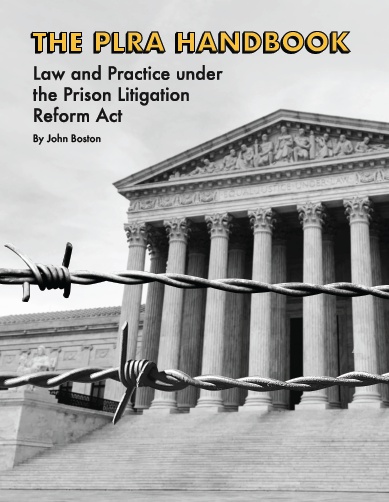PLN managing editor quoted on nationwide prison strike on Sept. 9
Why prisoners nationwide are striking
Last Updated Sep 9, 2016 1:24 PM EDT
Prisons can’t run without inmates, in more ways than one. Prisoners wash floors, work in the laundries and kitchens, and provide a large amount of the labor that keeps their facilities running. In return, they earn pennies per hour or even no pay at all.
That’s sparking what may be the largest prison strike yet as inmates across the country plan to stop working on Friday. The strikers are calling for an end to forced labor and what they call “prison slavery.”
It’s no coincidence that they picked Sept. 9 as the strike date: It’s the 45th anniversary of the Attica riot, when prisoners at the Attica Correctional Facility in New York rioted for better conditions.
The strike comes amid increased interest from lawmakers and the public in prison reform, as well as several nonviolent prison protests designed to draw attention to labor conditions, such as a 2014 work stoppage in Alabama prisons. The organizers frame the issue as slave labor because the 13th Amendment, which outlawed slavery in 1865, includes one exception: for people who are “duly convicted” of a crime.
“That’s why none of these protections, such as worker protections, apply to prisoners,” said Alex Friedmann, the managing editor of Prison Legal News and the associate director of the Human Rights Defense Center. “So under the 13th Amendment, they’re basically worked as slaves, and if they don’t work, they’re punished.”
Friedmann has personal experience with prison labor because he worked behind bars while he served his own prison term. His jobs ranged from working for the prison newspaper to screening T-shirts, including one that was a tie-in for a Batman movie. Most prison jobs, he noted, are designed to keep the facility running, rather than work that’s outsourced to private corporations.
The results of the strike won’t be known for days or weeks, said Azzurra Crispino, the media co-chair for the Incarcerated Workers Organizing Committee. “By withdrawing from participation in their work, they believe it’s the best way to have an impact on the prison industrial complex,” she said. “This is not a one-day strike. the solutions to this problem are going to require at the very least a constitutional amendment change to be effective.”
A riot erupted at a Florida prison on Wednesday, with the Miami Herald reporting that some officials were concerned the disturbance might foretell more problems as the strike unfolds.
Pay within prisons ranges from as low as roughly 15 cents an hour up to federal minimum wage of $7.25 an hour, although about half that pay is deducted before prisoners see it. Most jobs are low-paid positions that keep the prison running. The higher-paid ones are outsourced from private corporations -- such as prisoners sewing lingerie for Victoria’s Secret -- and are sought after by inmates, Friedmann noted.
Some states provide no guaranteed pay for prisoners. The minimum wage for Georgia and Texas prisoners is zero. Aside from the low or nonexistent pay, the strikers say they object to the use of violence or punishments if they don’t perform as well as their jailers expect.
“Overseers watch over our every move, and if we do not perform our appointed tasks to their liking, we are punished,” said a statement from the Incarcerated Workers Organizing Committee. “They may have replaced the whip with pepper spray, but many of the other torments remain: isolation, restraint positions, stripping off our clothes and investigating our bodies as though we are animals.”
Americans are increasingly aware of prison conditions, thanks to shows like “Orange Is the New Black.” At the same time, the prison population has surged during the past several decades. The incarceration rate has surged fourfold since the mid-20th century, according to “The Growth of Incarceration in the United States,” a book published by the National Academies Press. With more people behind bars, it’s increasingly likely that Americans know someone -- a friend, a colleague, a family member -- who has served time in prison.
Yet that doesn’t mean the Americans or lawmakers may be open to providing prisoners with higher wages. For one, the money would come out of federal or state budgets, which could mean cuts elsewhere. And politicians may not want to be perceived as being soft on convicted criminals.
The outcome of Friday’s work stoppage likely won’t be clear for some time. It’s possible that some prisons will order a lockdown to prevent a strike within their facility, Friedmann noted.
“Things move at a glacial pace,” he said, adding that his prediction is for more activism among prisoners: “This isn’t the end. It’s probably the beginning.”







